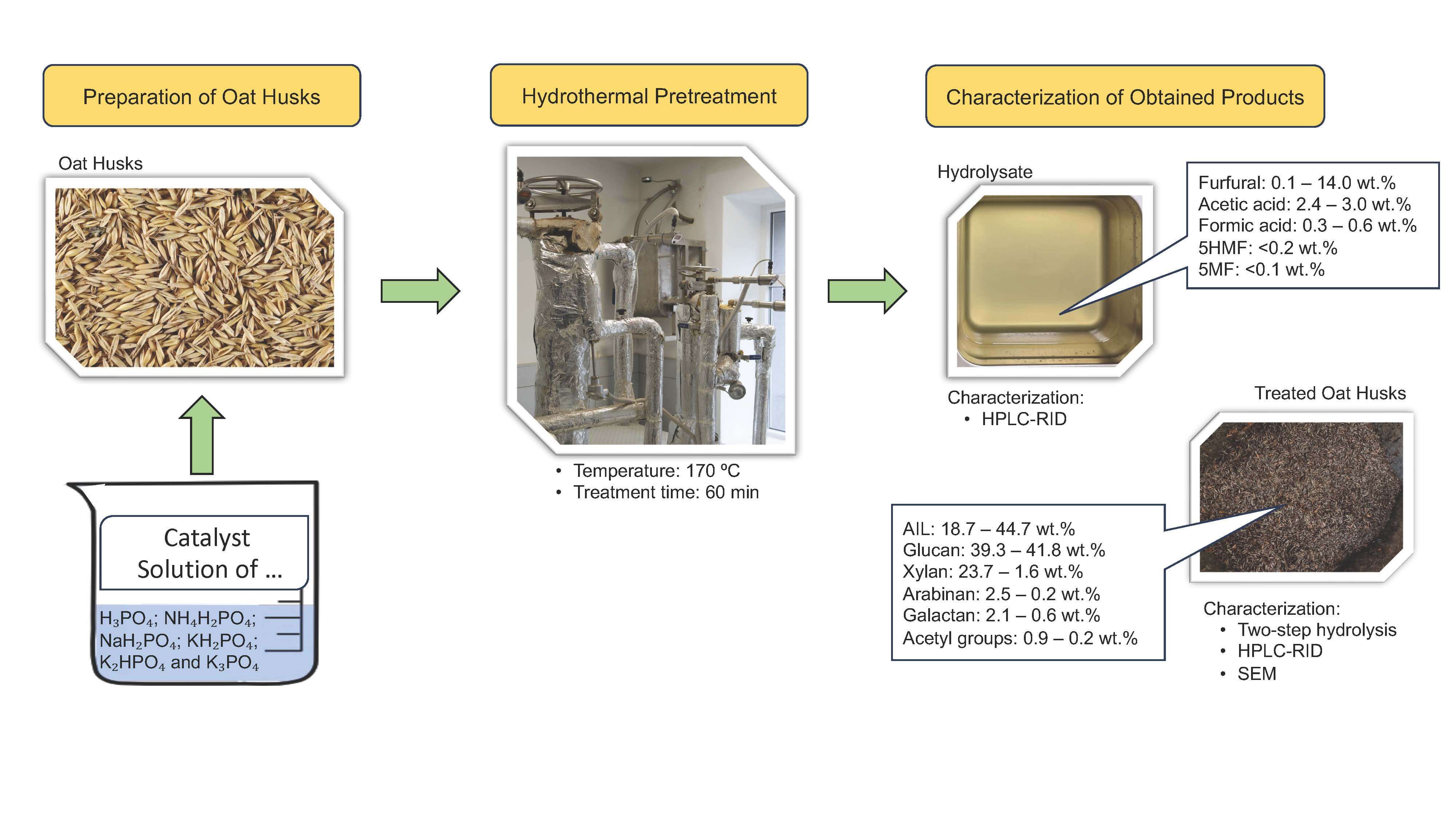 Open Access
Open Access
ARTICLE
Preliminary Study: Furfural Production from Oat Husks via Phosphorus-Containing Catalysts Catalyzed Hydrothermal Pretreatment in the Context of Biorefinery
Biorefinery Laboratory, Latvian State Institute of Wood Chemistry, Riga, LV-1001, Latvia
* Corresponding Author: Prans Brazdausks. Email:
(This article belongs to the Special Issue: Advances in Biorefinery Technologies and Products – 2024)
Journal of Renewable Materials 2025, 13(4), 719-730. https://doi.org/10.32604/jrm.2025.057944
Received 31 August 2024; Accepted 07 January 2025; Issue published 21 April 2025
Abstract
Oat husks, a byproduct of oat milling operations with limited economic value, present a promising feedstock for biorefinery processes due to their chemical composition. This study investigates the conversion of C5 carbohydrates in oat husks into furfural through hydrothermal pretreatment using various phosphate-based catalysts, including H3PO4, NH4H2PO4, NaH2PO4, KH2PO4, K2HPO4 and K3PO4 as catalyst. The catalysts’ effectiveness in promoting furfural production was evaluated under identical hydrothermal conditions (treatment time for 60 min at a constant temperature of 170°C and a catalyst amount). Continuous water steam was used to strip furfural from the reaction zone and minimize its degradation. Results indicated that H3PO4 was the most effective catalyst, achieving a furfural yield of 13.99 wt.%, which corresponds to approximately 57% of the theoretical yield. NH4H2PO4 also showed moderate effectiveness, while sodium and potassium phosphate salts were significantly less effective. A scanning electron microscope analysis shows that catalysts with lower pH may disrupt the oat husks external layer thus providing a higher C5 carbohydrates conversion rate into furfural. The chemical complexity of oat husk contributes to side reactions between its carbohydrates and lignin during the hydrothermal treatment. This results in an increase in acid-insoluble lignin and inorganic matter in the oat husk lignocellulosic residue, which can reduce the effectiveness of further cellulose saccharification by enzymatic hydrolysis.Graphic Abstract

Keywords
Cite This Article
 Copyright © 2025 The Author(s). Published by Tech Science Press.
Copyright © 2025 The Author(s). Published by Tech Science Press.This work is licensed under a Creative Commons Attribution 4.0 International License , which permits unrestricted use, distribution, and reproduction in any medium, provided the original work is properly cited.


 Submit a Paper
Submit a Paper Propose a Special lssue
Propose a Special lssue View Full Text
View Full Text Download PDF
Download PDF Downloads
Downloads
 Citation Tools
Citation Tools